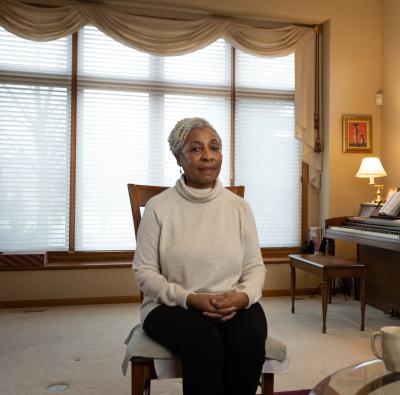The Supreme Court of the United States has released its final investigation report of last year’s leak of the Dobbs. v. Jackson Women’s Health Organization decision. This monumental breach of the Court’s confidentiality was handled with a conspicuously flawed investigation that yielded—surprise!—an inconclusive result. With this first major public...
Yesterday, the Senate Ethics Committee (“Ethics Committee”) released its annual report for 2022, revealing that it dismissed nearly all its ethics investigations and only issued one private letter of admonition as a penalty. In response, CLC sent a letter to Chairman Chris Coons (D-DE) and Vice Chair James Lankford (R-OK), calling on them to end...
As President Donald Trump demanded vote recounts and filed lawsuits across the country to challenge the results of the 2020 presidential election, he raised millions of dollars to help finance his efforts. But he ultimately spent several million dollars that he raised during this period on something completely unrelated, and his actions illustrate...
Voters have a right to know who’s spending money to influence elections. That’s why federal campaign finance laws require people running for public office to declare their candidacy and file reports that disclose who their donors are and how they spend campaign funds, including political contributions.
Federal law also prohibits super PACs —...
Kevin McCarthy became Speaker of the House of Representatives — one of the highest roles in our government and second in line to the Presidency — in a dramatic five-day, fifteen-round marathon of votes that highlighted the stark, rancorous divisions in his caucus.
Largely overshadowed by the drama of McCarthy’s bid to become Speaker was a...
CLC has joined a letter urging Congress to strengthen and codify into law the U.S. Office of Congressional Ethics (OCE). The letter asks not only for OCE to be codified into law, but also strengthened by giving OCE the power to subpoena witnesses during investigations.
OCE is an independent watchdog that provides vital nonpartisan oversight and...
When campaigning for public office, federal candidates have to be honest with the public about who is giving their campaign money. Transparency regarding the sources of election spending is vitally important to our elections, as complete and accurate information about who is spending money to back candidates empowers voters to more meaningfully...
Late last year, Congress delivered a major victory for democracy by passing the Electoral Count Reform Act of 2022 (ECRA). This bipartisan legislation, included as part of an omnibus appropriations and policy package, updates the archaic Electoral Count Act (ECA) of 1887. The ECA, as updated by the ECRA, provides the primary legal framework for...
Campaign Legal Center (CLC) recently endorsed the TRUST in Congress Act, a bipartisan bill reintroduced by Reps. Abigail Spanberger (D-VA) and Chip Roy (R-TX). The TRUST in Congress Act would prohibit members of Congress from trading individual stock while in office by requiring members to put their holdings in a qualified blind trust or divest.
...Representative George Santos has a lot of people to answer to. First and foremost should be his constituents, the voters of New York’s 3rd Congressional District, who were deliberately deceived regarding critical personal and financial information about the candidate on their ballot.
Voters have a right to the information they need to make...
CLC and 24 partners sent a letter to the full U.S. House of Representatives, urging members to remove two proposed House rules for the 118th Congress that would weaken the U.S. Office of Congressional Ethics (OCE), the only independent ethics investigative body in Congress.
OCE’s core function is to provide independent, nonpartisan oversight to...
In a major victory for democracy, Congress passed the Electoral Count Reform Act of 2022 (ECRA). This vital legislation will update the Electoral Count Act of 1887 (ECA), an archaic law that provides the primary legal framework for casting and counting Electoral College votes in presidential elections.
Congressional passage of the ECRA is crucial...
The bipartisan House Select Committee investigating the January 6th attack on our country issued a comprehensive report after a series of public hearings, conducting more than 1,000 interviews and reviewing hundreds of thousands of documents.
The committee’s report contains detailed factual findings from its investigation, as well as a series of...
CLC and 13 partners have sent a letter to the incoming leaders of the House of Representatives urging the reauthorization and strengthening of the U.S. Office of Congressional Ethics (OCE).
OCE is the only independent ethics investigatory body in Congress and is subject to reauthorization through the House Rules at the beginning of each new...
One could sum up the 2022 election cycle in two words: democracy won. In the absence of federal voting rights reform, states have needed to step up and become the new vanguard for protecting the freedom to vote. Across the country, Americans voted to strengthen our democracy through ballot initiatives.
In Michigan, voters passed Proposal 2 by a...
After failing to act on a 2016 complaint brought by Campaign Legal Center (CLC), the Federal Election Commission (FEC) has been directed by the U.S. District Court of the District of Columbia to take action regarding a massive coordination scheme between the 2016 presidential campaign of Hillary Clinton and a super PAC called Correct the Record.
...
Voters have a right to know who is spending money to influence their vote and affect the outcome of elections, which is why federal campaign finance laws require disclaimers on election ads.
Disclaimers — the “paid for by” statement written or spoken at the end of most political ads — are one of the most important transparency-promoting tools for...
The public’s trust in state and local government remains higher than public trust in the federal government. One of the reasons for the difference may be that state and local ethics commissions nationwide are relying on innovation to solve corruption problems and foster an ethical culture before scandal erupts.
CLC’s new report, Top Ten...
Campaign Legal Center (CLC) has filed a complaint with the U.S. Senate Select Committee on Ethics (Ethics Committee) concerning Senator Ted Cruz improperly accepting a gift from iHeartMedia (iHeart) in violation of Senate rules and the Honest Leadership and Open Government Act (HLOGA).
The complaint stems from Senator Cruz and iHeart entering...
The U.S. Supreme Court, one of our nation's most powerful institutions, has zero infrastructure in place to investigate ethics violations - and that's a problem.
For example, if there are credible allegations that a Supreme Court Justice leaked the results of a ruling, there is no procedure for investigations or any rule prohibiting the leak.
...Arizona voters are ushering in a new era of campaign finance transparency in the Grand Canyon State. Specifically, an overwhelming majority of Arizona voters passed Proposition 211 on Election Day 2022, also known as the “Voters’ Right to Know Act.”
Prop 211 will shine light on the original sources of secret campaign spending in Arizona and...

